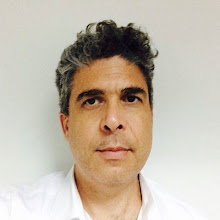Say Yes to Coca, Not to Cocaine
That may be the tagline chosen by the brand new Bolivian Drug Tzar, Felipe Caceres, to promote his unorthodox policies.
Felipe Caceres is a contradiction, a Coca planter in charge of eradicating illegal drugs. His take on Coca is difficult to understand: To increase production for medicinal and ceremonial purposes, while decreasing production and use of cocaine.
To be fair, Washington’s anti drug policy is also based on contradictions. The focus on production eradication has backfired as an incentive for production itself: The more difficult an illegal drug is to obtain, the higher the margin.
Bolivia’s policy may not be that preposterous. There are precedents, like the one of poppy, a plant grown in controlled environments to produce opium based medicines. Indeed, this move could actually be a good thing, if it forces Washington to reconsider it’s anti-drug strategy.
However, beyond the drug war, there is something very telling about this peculiar appointment and Evo Morales's mind. This move heralds a radical politician, willing to take the initiative and surprise the enemy, like his mentor Hugo Chavez.

